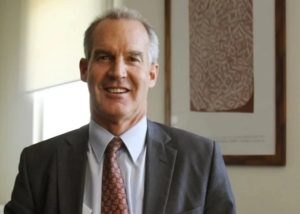Ghana’s assets declaration law is a joke – Australian High Commissioner

The Australian High Commissioner to Ghana has criticised the country’s asset declaration law, describing it as a joke, with a call on government to find more effective means to implement it if it is serious about eliminating corruption.
Ghana has two main laws on asset disclosure – Article 286 (1) of the 1992 Constitution and the Public Office Holders (Declaration of Assets and Disqualification) Act, 1998 (Act 550). These laws which give guidelines on how public officers should declare their assets have been heavily criticised over the years by civil society groups and individuals due to their lack of transparency. The assets so declared are kept in sealed envelopes and cannot be disclosed. Not even the Auditor-General who receives the envelopes knows what they contain.
Speaking during the release of a World Bank publication, titled; License to Drill, 2018 at the Bank’s office in Accra on Wednesday November 29, 2018, Andrews Barnes said Ghana can eliminate corruption if it sanitises the system to ensure transparency. Following what a Member of Parliament had said, he stated; “As the honourable MP said, it’s really a bit of a joke and I think everyone will agree with that, you write your assets down in an envelope, you go to the Auditor-General and you sit in his office, in a manual copy, no one sees it until you resign and then it might come out. In Australia we have a very simple system, it is cheap, it’s effective and I will suggest in Ghana if your government is serious about corruption, if your government is serious about beneficial ownership, you will look at this issue and you will adopt something similar,” he said.
The publication, “License to Drill” which was drafted by a Senior Financial Sector Specialist at the World Bank, Cari Votava and two other officials, aims at reducing corruption in the extractive and natural resource sectors, to avoid impediment on economic development and prevent illicit financial flows.
It is also pushing for transparent license acquisition to effectively eliminate corruption in the value chain where responsible officials are accountable and where the identity of beneficial owners and politically exposed persons linked to licenses are publicly disclosed.
The publication according to the World Bank, focuses on good practice options to conduct integrity checks on applicants licenses which consist of beneficial ownership checks, criminal background checks and conflict of interest checks to ensure that licences are granted to those likely to meet high integrity standards in developing country’s valuable assets and also provide guidelines to remove loopholes from regulatory frameworks.
The World Bank says, the manual will be useful for officials and experts seeking to improve the quality and transparency of regulatory governance of extractive and natural resources sectors.
Meanwhile, some civil society groups are demanding for the disclosure of mining deals by government to the citizenry. According to the Chief Executive Officer of the Center for Extractive and Development – Africa, Emmanuel Kuyole, it is the right of every citizen to know what is happening with the country’s minerals. “One of my expectations from this is that we mobilise a lot of public pressure around it to get the minerals commission and the Ministry of Mines to disclose mining contracts to the citizens because the resources we are talking about are public resources, the citizens also have a right, it is not something negotiable, they have a right to know what is contained in the deals that government signs,” he said.
By Asabea Akonor
Copyright ©2018 by Creative Imaginations Publicity
All rights reserved. This news item or any portion thereof may not be reproduced or used in any manner whatsoever without the express written permission of the publisher except for the use of brief quotations in reviews.
